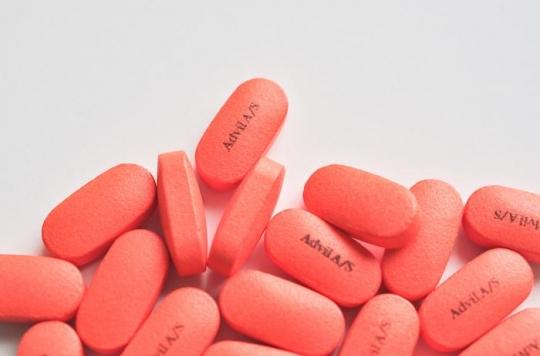The Minister of Economy Bruno Le Maire will sign the ministerial decree making effective the ban on the food additive E171 whose composition, rich in titanium dioxide, is suspected of being dangerous for health.

Against all odds, Bruno Le Maire was reluctant to ban the food additive E171 whose composition, rich in titanium dioxide, is suspected of being dangerous to health. At the beginning of last week, he explained on the set of It’s up to you that he was not going to sign a ministerial decree, judging that the evaluations on the dangers of the product were not clear. “Coherence is having an assessment that is shared on the dangers of titanium dioxide,” argued the Minister of the Economy.
Suspension of titanium dioxide mid-April
Outraged, about twenty associations would have finally succeeded in making him change his mind. “Bruno Le Maire reconsiders his remarks and undertakes to indeed sign the long-awaited decree to make the suspension of titanium dioxide effective in mid-April”, they wrote in a press release.
Last May, the Secretary of State for Sustainable Development Brune Poirson announced that she wanted to withdraw titanium dioxide nanoparticles from the market, used as a coloring agent to make sweets and prepared meals: “we want to suspend before the end of the year the use of this substance as a food additive in France. France has already contacted the European Commission in order to also request measures at this level, since titanium dioxide is likely to constitute a serious risk for the human health.” Provided for in the Egalim law passed in November, the suspension of the controversial food additive still requires a ministerial decree to be effective.
Colon Cancer
On food labels, the code name for titanium dioxide is “E171”. Last January, ANSES was contacted by the ministries responsible for the Economy, Health and Agriculture, questioned by a study conducted by the National Institute for Agricultural Research (INRA) on rats. The researchers demonstrated that titanium dioxide nanoparticles were responsible for precancerous lesions in the colon. They also proved that this chemical was able to cross the wall of the intestine and find its way into the bloodstream. But for its part, the European Food Safety Authority still considers that titanium dioxide is “not likely to cause a health risk” in men.
Confectioners had already taken the lead in early 2017. They collectively committed to do without titanium dioxide, each at their own pace. Verquin, producer of the famous Têtes brûlées, has not used this additive since December 2017, as have the manufacturers of Harlequins and Malabars.
Doliprane, Advil, Spasfon
Beyond the candy industry, Stéphen Kerckhove, president of Acting for the Environment, recalls that E171 is found in almost all prepared dishes. In 2016, the association detected it in 150 foodsfrom Lu’s Neapolitan cakes to Carrefour’s guacamole spices, to William Saurin’s canned veal blanquette.
“We are calling for the widest possible ban which does not only concern our food but everything that can harm health”, also pleads Stéphen Kerckhove in The Parisian. According to the UFC-Que Choisir association, more than 4000 drugs, often very common (Doliprane, Advil, Spasfon…), also hide nanoparticles of titanium dioxide used as a dye. Titanium dioxide is also incorporated into many everyday products, such as cosmetics, toothpaste, sunscreens, paints or building materials.
.
















